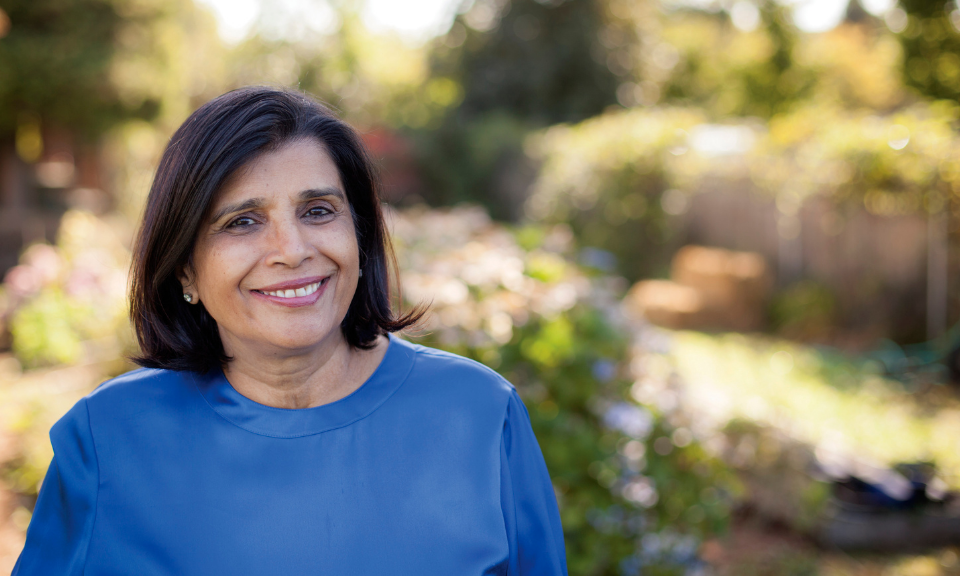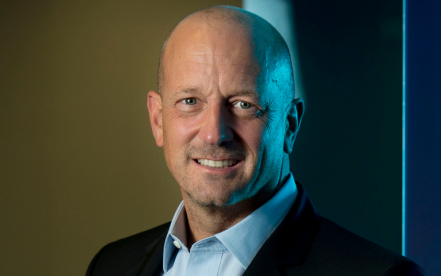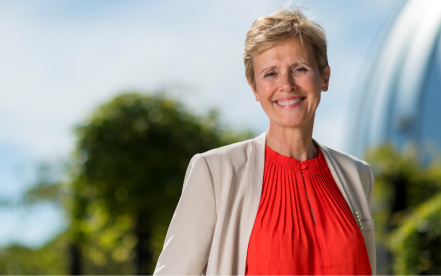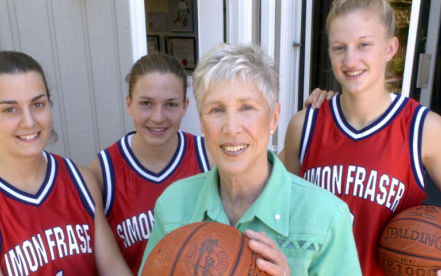Growing healthy people and communities

The kindness of others at a critical time in her youth helped to pave the way for Ratana Stephens—and inspire her own deep commitment to giving back to the community.
With her grandmother’s fierce encouragement and through student awards as well as financial assistance from a generous older couple during her final year, Ratana graduated from Agra University in India—the first person in her immediate family to do so. She would become a college lecturer, meet her husband Arran, move to Vancouver, and build Nature’s Path Foods, a remarkable family business that has become North America’s largest independent certified organic breakfast and snack food company.
“As a woman of colour, as a woman who was brought up in so-called poverty, I empathize with the young people who face adversity,” Ratana says. “I understand first-hand how important it is for students to be supported, especially those who come from families of little means.”
Ratana recently made a unique commitment to SFU that supports student bursaries, food for students in need, and experiential learning in the Food Systems Lab—a research and innovation hub working to reduce food waste and improve food security.
“Higher education is truly one of the greatest gifts,” she explains. “I want to support institutions like SFU in order to nurture minds, encourage others to reach their full potential, and inspire tomorrow’s leaders.”
She is particularly committed to empower diverse perspectives and ensure that young women can thrive in a rapidly changing world.
“My grandmother could not write, and my mother had just a grade three education,” Ratana explains. “But my grandmother believed in me, and taught me I could do anything I wanted to do in life and to be anything I wanted to be. But not all women have such a strong advocate in their corner.”
As CEO and co-founder at Nature’s Path, she strives to be a mentor for all women team members and provide them with opportunities to be leaders both within the organization and in their communities.
“I am a passionate advocate of servant leadership, which begins with the natural feeling that one wants to serve, and to serve first, not lead first,” Ratana says. “I believe a good leader focuses on the growth and well-being of the people and the communities to which they belong.”
Since 2008, Ratana and Arran personally, and through Nature’s Path, have committed to donating almost $40 million to various philanthropic and community service efforts.
“In Punjabi, there is a saying, ‘as long as you live, you give, and you give,’” Ratana explains. “You give to the people who don’t have. You give to the institutions that are supporting your society, and your nation.
“I am extremely lucky and thankful that I am now in a fortunate position, one that enables me to give back, especially to the local community of Vancouver in which we live and work. I feel it’s my duty.”
Values like these continue to guide the Stephens family and their company’s founding mission of protecting the planet and leaving the earth better than they found it.
“Being a family-owned, independent company allows us to stand up for causes we’re passionate about,” Ratana says. “This allows us to put the planet, organic farming and our community first. We continue to remain true to our original vision and activist roots.
“We are proud of our commitment to the triple bottom line of being socially responsible, environmentally sustainable and financially viable.”
For Nature’s Path, that means growing more nutrient-rich food, prohibiting chemical interventions and GMOs, building healthy soil, becoming carbon neutral, achieving zero waste in manufacturing, preserving water, educating and inspiring others about sustainability, and giving back through financial contributions, in-kind donations and volunteerism. The company’s latest sustainability goal is for all its packaging to be reusable, recyclable or compostable by 2025.
A mother of four and grandmother of seven, Ratana feels strongly that as citizens, we must each do our part to tackle the complex challenges of these uncertain times.
“Solving any ‘big’ problems begins with changing ourselves. As Gandhi said, ‘be the change you wish to see in the world,’” Ratana explains.
“I truly believe if we change ourselves, we can then change the environmental challenges facing the world today. If we can empathize with people of different colours, races, financial backgrounds, sexual orientations, we can solve the bigger issues.
“Let’s work on ourselves to become better human beings, better environmentalists, better humanitarians, then we can solve ALL the big problems!”


